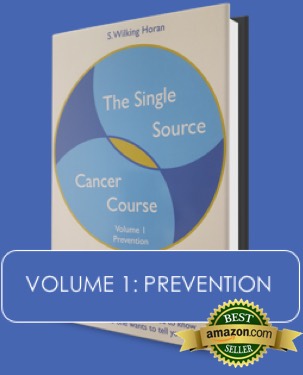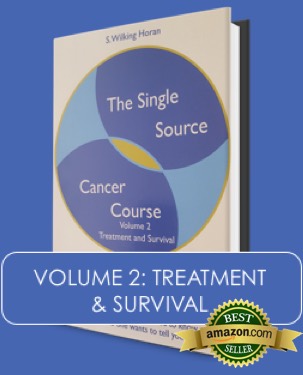 TAKING CARE OF BUSINESS
TAKING CARE OF BUSINESS
Hello again everyone and welcome to another WELLNESS WEDNESDAY.
One of the hardest issues to face in life is the fact that one day it will end. I’m sorry, but there’s just no getting around it. And, for people like me who seem to get cancer a lot, it’s not a distant event in the far-off future. Instead, it’s a constant possibility that could easily occur sooner rather than later.
While most people wonder if there’s a bus out there with their name on it, many cancer patients and survivors have seen that bus – with their name on it – and it’s racing down the street at full speed.
But, whether your demise appears to be imminent or not, the unfortunate fact remains that death is not optional.
Trek Machu Picchu. Swim with the dolphins. Ride in a hot air balloon. We spend a lot of time these days planning our bucket list. So, why not spend a little time planning our end of life care as well?
Because, end of life care in today’s world can be very complicated. There are many options to consider. Do you prefer quality of life over quantity of life? Do you want to live your last days at home, in a hospital or under hospice care? Do you want to be kept alive and breathing by life support machines? Would you want to be resuscitated if your heart stopped?
In light of the many considerations that we encounter when discussing such end of life medical issues, there are three very important documents that can help us sort out these issues and answer these very questions.
1) First, we have the LIVING WILL or ADVANCE HEALTHCARE DIRECTIVE (AHD).
This instrument is a record of your values and healthcare goals. In it you decide under what circumstances you would want to be kept alive. For example, would you want to be kept alive if:
- You could not care for yourself.
- You could only live with severe pain or discomfort.
- You could not live without being permanently hooked up to a breathing machine.
- You could not recognize family or friends.
- You were in a coma and unresponsive.
- You were left a quadriplegic by a tragic accident.
This document also expresses your desires for future medical care should you be unable to speak for yourself. You can appoint a person to make the necessary medical decisions on your behalf and in accordance with your beliefs and values.
This information will determine any and all medical treatments you receive from dialysis, to experimental drugs, to resuscitation attempts and will ensure the donation of your organs to others in need or to medical science if that is your wish.
And while the law varies with the country or state in which you may live, you typically will need two witnesses present when you sign this document and a notary to officially stamp it. If you have an attorney who handles your personal affairs, it’s also a good idea to have her or him review your AHD as well.
2) Second, let’s discuss the MEDICAL POWER OF ATTORNEY (MPA).
In our discussion of your ADVANCE HEALTHCARE DIRECTIVE, we mentioned that you could appoint someone who would make all medical decisions for you should you become incapacitated.
When you do this, you are giving this trusted person a MEDICAL POWER OF ATTORNEY. This involves preparing a document that grants this person the authority to determine your medical treatment ONLY. This document does not grant this person authority over any other aspect of your life. She or he will not be involved with your financial issues, legal problems, personal property or other assets of any kind.
In this way, you are guaranteed that your wishes for your end of life medical care will be honored and carried out.
In my case, I appointed my brother as my MPA. Not only does he know me and understand what I would and would not want to undergo medically if I ever became incapacitated, he’s also a compassionate doctor whom I can trust to exercise common sense while making sure my wishes are met.
Again, this document can be executed by completing a form letter or penning a hand-written note signed and dated by you.
As always, however, check the law where you live to make sure your preparation of this document meets with all the necessary legal requirements of your country or state of residence.
3) Third, we have a HIPAA RELEASE.
To begin, let’s explain what HIPAA is for those who may not know.
You know when you visit a new doctor and the office manager gives you a mountain of forms to fill out? Well, most of those have to do with keeping your medical information private.
In 1996, the United States enacted the HEALTH INSURANCE PORTABILITY AND ACCOUNTABILITY ACT or HIPAA. One of the most important provisions of this Act is the obligation of healthcare providers to keep every patient’s medical records confidential.
Privacy when it pertains to our healthcare and personal medical history is essential. But, it can create severe unintended consequences as well.
You see, you are the only person who can give permission to others to share your medical information. And, if you become incapacitated and cannot speak for yourself, your medical records will be unobtainable – even to your family, friends, doctors and the person charged with your MEDICAL POWER OF ATTORNEY.
Without the legal authority to access and share your medical records, these individuals will be unable to ensure that you receive the proper medical care that you need and desire.
A HIPAA RELEASE will allow your physicians and medical providers to share and discuss your medical situation and needs with whomever you designate in this document.
And, again, please make sure you check the legal requirements and guidelines of your place of residence to ensure all your Ts are crossed and your Is are dotted.
While there are other important documents that we should all have in place, including a WILL, a LETTER OF INTENT and a DURABLE POWER OF ATTORNEY, the above three medical documents will help tremendously in the event you ever become incapacitated. They will allow you to voice your values and preferences for any and all medical care when you can’t speak for yourself. They will allow you to express those situations you want to avoid. And, they will give you peace of mind in knowing you and your healthcare desires will be protected and honored.
I know this isn’t easy. But, it’s essential to discuss these issues so we can remain proactive and personally responsible for our own health and wellbeing. Again, I always say,
“DON’T BE SURPRISED. BE PREPARED.”
With that, I thank you all once more for joining me and I wish you all a long and happy life. Until next time, stay in GOOD HEALTH and . . .
TAKE THE COURSE AND TAKE CHARGE!



Leave a Comment